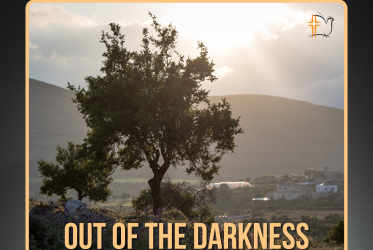Free photos available, see below
To restate the ecumenical vision for the 21st century requires a profound change in churches and ecumenical bodies, Rev. Dr Samuel Kobia told the central committee of the World Council of Churches (WCC) today.
This "is not just a matter of structures", Kobia said in his first report as the organization's general secretary. To respond to today's challenges requires "a process of transformation" of the ecumenical movement "that must be rooted in the conversion to the source of our lives and the life of all creation, the Triune God whom we confess together".
These challenges include, according to Kobia, the "quest for authentic spirituality", usually "understood as existing over against organized religion", that appears "especially but not exclusively among the young people". New forms of "primarily experiential expressions of faith" articulate themselves in "post-denominational expressions of being church".
These changes in the religious landscape take place in a context where "some of the rich nations are constantly engaged in redesigning a new world in which the poor and the weak will have little or no voice", thus jeopardizing the "democratic gains of the last two decades", Kobia said.
This effort to reshape the world is supported by a new ideology that "legitimizes a culture of violence" by invoking God "arbitrarily to suit a particular agenda for aggression". As a result, "insecurity, fear and anxiety characterize the lives of many people in all regions".
Kobia contrasted this rather "bleak and gloomy portrait of the world", with "many signs of hope" that he discovered in his visits to WCC member churches. "From region after region, voices are raised vowing that 'Another world is possible - new heavens and a new earth!'"
A "rising spirituality of resistance and hope" shows itself in "the commitment to the unity of the church and God’s household of life, the readiness to move beyond our own communities and to work together with people of other faith for peace and justice", and a willingness among Council member churches "to speak to power with truth".
Kobia sees the "prophetic task of the ecumenical movement in the 21st century" as helping human communities to find "ways of going beyond the logic of violence and domination and establishing alternative non-violent ways of resolving conflicts".
The upcoming WCC ninth assembly will provide a unique opportunity to take stock and to set the future course for the movement. It "marks a new phase in ecumenism" and "a coming of age within the membership of the World Council", Kobia believes.
The assembly will be shorter and smaller than in the past, but "promises meaningful deliberation", Kobia said. Decision-making by consensus will allow delegates to seek "new ways to come to agreement on important statements and actions". He also aims to make it " the youngest assembly in the history of the WCC".
The WCC central committee meeting, which gathers 150 church representatives from all over the world, started today and continues until February 22. This is its last session before the ninth assembly of the Council, which meets in Porto Alegre, Brazil, in February 2006, with the theme "God, in your grace, transform the world".
The text of the full report, free high resolution pictures and additional information about the WCC central committee meeting are available at:






